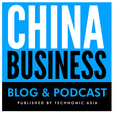
Summary: Interviewer: Steve Ganster My name is Steve Ganster, Managing Director of Technomic Asia, a market strategy and growth consultancy based in Shanghai. I’m pleased to continue our series on M&A in China with our second segment in a conversation with Qi Tang, Technomic’s M&A practice leader, on why deals fail. In our last podcast, we covered aspects of deal failure such as differences in the environment between the West and China, important trust issues in relationship-building, as well as the unique prevalence of multiple sets of financial books. In this segment, we will address additional issues such as regional geographic influence on M&A, private-owned enterprise versus state-owned enterprise deals, the impact of a softer economic environment, and other topics. I hope you find the conversation useful in your understanding of doing deals in China. Steve: Qi, how about the difference in dealing with a state-owned enterprise (SOE) versus a private enterprise in terms of doing the deal? Dramatic differences in how you approach the deal? Or likelihood in closing the deal? What do you think? Qi: SOEs versus POEs--They are in very different situations in terms of operating objectives, so we’ve got to have different ways to approach those two very different animals. Typically, POE seller-owner would be more interested in selling for a higher price-tag, while for an SOE, their objective could be more complicated. Other than selling for a higher price. For instance, an SOE seller, in some cases, would also have to factor in consideration of taking care of the employment, the social responsibility of keeping jobs for a particular locale. So if a foreign acquirer’s proposal can demonstrate that the business would continue to be good or much better, and all the jobs would be retained, then there will be a consideration from the Chinese seller to factor this in, even to be factored into the valuation of the company. Steve: Qi, one of the other areas that might be a problem or maybe a solution to improving the deal success is structuring the deal. What do you see as some of the popular approaches now to deal with perhaps gaps in valuation for putting some golden handcuffs on existing management? How are deals being done? Qi: In many cases, I would recommend a phased approach given the often huge differences between the Chinese seller and the Western acquirer in valuation. The reasons, I think, are pretty obvious. A seller could have cooked the books, but after a couple months of interaction, it’s still premature for him to tell you the truth. He might need some longer time before having full confidence to tell you the story and also let you experience what he told you is real, because sometimes it’s really difficult for a Chinese seller to demonstrate to a buyer in writing or in documents that the real sales of this company is this number versus the sales as indicated in a book, which was only meant to show to the local authorities. Steve: Qi, clearly this year China has, relatively speaking, slowed in terms of its GDP growth, and it’s not sure when that recovery will kick back in, but clearly the market landscape in terms of economic growth has tempered a bit. What impact is that having, do you think, on foreigners making acquisitions here? Qi: I think these days because of this slow-down in economic growth, more opportunities are emerging. Many domestic-market-oriented Chinese companies, ironically, to my knowledge, are in difficulties versus companies which are export oriented. Many export companies appear to be basically stable. You may have seen the numbers for October. Chinese exports grew by 10% from a year earlier, so potential acquirers should not miss this window to spot good acquisition targets. Steve: So you’re suggesting that companies now may be more open to selling or maybe to a more realistic valuation given the economic environment? Qi: Both.
